第98章
"Look here, my friend," his professor said to him more than once, "you have talent; it will be a shame if you waste it: but you are impatient; you have but to be attracted by anything, to fall in love with it, you become engrossed with it, and all else goes for nothing, and you won't even look at it.See to it that you do not become a fashionable artist.At present your colouring begins to assert itself too loudly; and your drawing is at times quite weak; you are already striving after the fashionable style, because it strikes the eye at once.Have a care! society already begins to have its attraction for you: I have seen you with a shiny hat, a foppish neckerchief....It is seductive to paint fashionable little pictures and portraits for money; but talent is ruined, not developed, by that means.Be patient;think out every piece of work, discard your foppishness; let others amass money, your own will not fail you."The professor was partly right.Our artist sometimes wanted to enjoy himself, to play the fop, in short, to give vent to his youthful impulses in some way or other; but he could control himself withal.At times he would forget everything, when he had once taken his brush in his hand, and could not tear himself from it except as from a delightful dream.His taste perceptibly developed.He did not as yet understand all the depths of Raphael, but he was attracted by Guido's broad and rapid handling, he paused before Titian's portraits, he delighted in the Flemish masters.The dark veil enshrouding the ancient pictures had not yet wholly passed away from before them; but he already saw something in them, though in private he did not agree with the professor that the secrets of the old masters are irremediably lost to us.It seemed to him that the nineteenth century had improved upon them considerably, that the delineation of nature was more clear, more vivid, more close.It sometimes vexed him when he saw how a strange artist, French or German, sometimes not even a painter by profession, but only a skilful dauber, produced, by the celerity of his brush and the vividness of his colouring, a universal commotion, and amassed in a twinkling a funded capital.This did not occur to him when fully occupied with his own work, for then he forgot food and drink and all the world.But when dire want arrived, when he had no money wherewith to buy brushes and colours, when his implacable landlord came ten times a day to demand the rent for his rooms, then did the luck of the wealthy artists recur to his hungry imagination;then did the thought which so often traverses Russian minds, to give up altogether, and go down hill, utterly to the bad, traverse his.And now he was almost in this frame of mind.
"Yes, it is all very well, to be patient, be patient!" he exclaimed, with vexation; "but there is an end to patience at last.Be patient!
but what money have I to buy a dinner with to-morrow? No one will lend me any.If I did bring myself to sell all my pictures and sketches, they would not give me twenty kopeks for the whole of them.They are useful; I feel that not one of them has been undertaken in vain; Ihave learned something from each one.Yes, but of what use is it?
Studies, sketches, all will be studies, trial-sketches to the end.And who will buy, not even knowing me by name? Who wants drawings from the antique, or the life class, or my unfinished love of a Psyche, or the interior of my room, or the portrait of Nikita, though it is better, to tell the truth, than the portraits by any of the fashionable artists? Why do I worry, and toil like a learner over the alphabet, when I might shine as brightly as the rest, and have money, too, like them?"Thus speaking, the artist suddenly shuddered, and turned pale.Aconvulsively distorted face gazed at him, peeping forth from the surrounding canvas; two terrible eyes were fixed straight upon him; on the mouth was written a menacing command of silence.Alarmed, he tried to scream and summon Nikita, who already was snoring in the ante-room;but he suddenly paused and laughed.The sensation of fear died away in a moment; it was the portrait he had bought, and which he had quite forgotten.The light of the moon illuminating the chamber had fallen upon it, and lent it a strange likeness to life.
He began to examine it.He moistened a sponge with water, passed it over the picture several times, washed off nearly all the accumulated and incrusted dust and dirt, hung it on the wall before him, wondering yet more at the remarkable workmanship.The whole face had gained new life, and the eyes gazed at him so that he shuddered; and, springing back, he exclaimed in a voice of surprise: "It looks with human eyes!"Then suddenly there occurred to him a story he had heard long before from his professor, of a certain portrait by the renowned Leonardo da Vinci, upon which the great master laboured several years, and still regarded as incomplete, but which, according to Vasari, was nevertheless deemed by all the most complete and finished product of his art.The most finished thing about it was the eyes, which amazed his contemporaries; the very smallest, barely visible veins in them being reproduced on the canvas.
But in the portrait now before him there was something singular.It was no longer art; it even destroyed the harmony of the portrait; they were living, human eyes! It seemed as though they had been cut from a living man and inserted.Here was none of that high enjoyment which takes possession of the soul at the sight of an artist's production, no matter how terrible the subject he may have chosen.